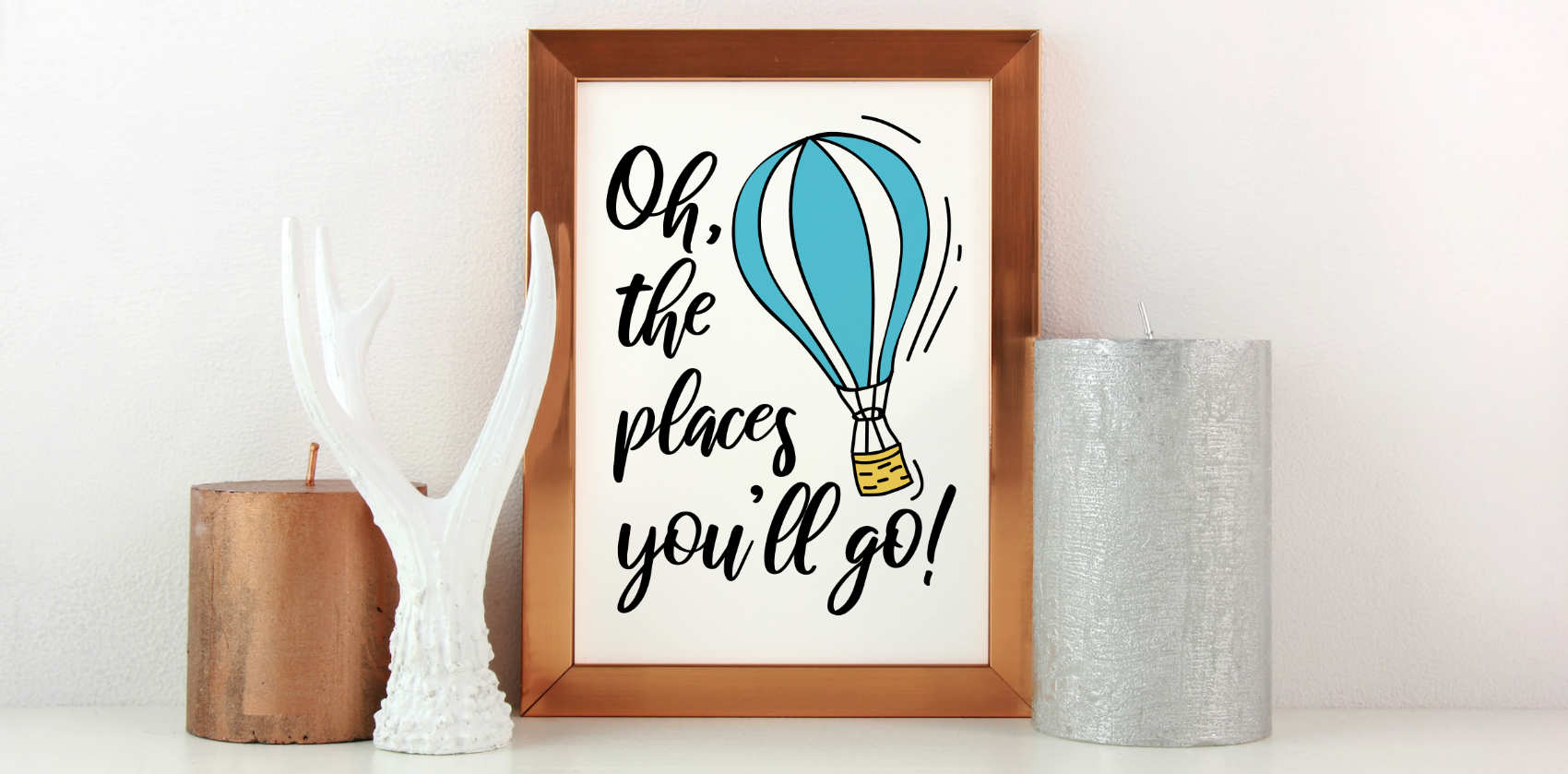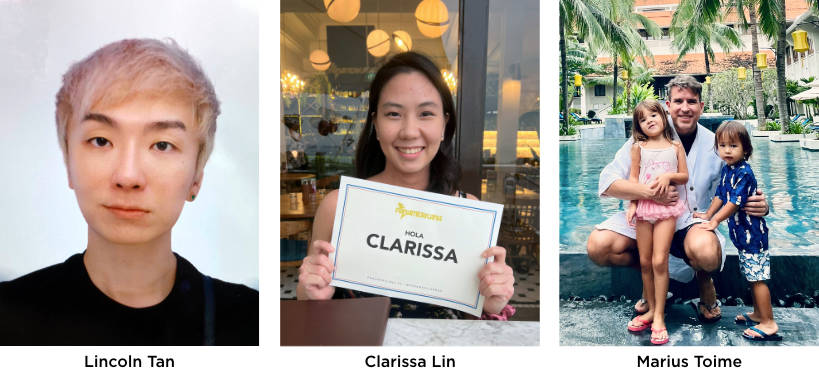
There and Back Again: A Lawyer’s Tale
Like a certain Mr Baggins who wrote about his experiences outside the Shire and his comfort zone, this article features some lawyers who have spread their wings and made that leap of faith to work overseas, either in-house or in private practice. The Law Gazette speaks to Lincoln Tan, Clarissa Lin and Marius Toime!
1. Please tell us about yourself.
LT: Hello! I am Lincoln and I am a Legal Director at Gilead Sciences, looking after the legal risks arising from the international region’s key Cell Therapy launches. Prior to Gilead Sciences, I was head legal at Roche and Novartis and I was also working in a few Japanese law firms before that too. It has been 10 years since I qualified as an advocate and solicitor in Singapore and I have been blessed to have had the opportunity to work and live in countries like Japan and Vietnam.
CL: My name is Clarissa and I am currently a Regional Counsel in a FinTech company. Prior to this, I worked in a Singapore law firm with an office in Dubai, United Arab Emirates (UAE) for about 4 years. I had always known that I wanted to live and work overseas at some point in my life. As I did not study abroad or attend any exchange programmes, I knew that my dream of experiencing a life outside Singapore was going to have to be through my career.
MT: Hello, I’m Marius, a corporate and projects lawyer with around 2 decades of experience in private practice. I was admitted to the Singapore Bar in 2018. As a partner in the corporate practice group at K&L Gates Straits Law LLC, I specialise in M&A, projects and finance and have been lucky enough to have lived and worked in places such as Singapore, Indonesia and New Zealand.
2. How did the opportunity to venture overseas arise, and why that country?
LT: The last city that I was working in for 1.5 years was in Ho Chi Minh City and before that I was also based in Tokyo. I speak fluent Japanese and was naturally placed in the “Tokyo team” of the law firms that I worked in, wherein I would speak and draft legal contracts in Japanese (under the supervision of a Japanese partner) and specialising in M&A also meant that I was required to work in HCMC (for inbound Japanese investors) and in Tokyo (for outbound Japanese investments). When I was not too keen to stay in Tokyo/Singapore, an opportunity came up with another Japanese law firm that brought me to HCMC to work with Japanese investors given the huge inbound investments from Japan.
CL: My friend who was at the Singapore law firm at the time reached out to me. He knew I was looking for a change in my career and he suggested I apply for the opening in their Dubai office. I knew I wanted to go overseas at some point but I never envisaged that it would be to Dubai. At the time, I had only seen Dubai’s airport during transits. Nevertheless, I believe that life is about experiences and there was no harm in just trying – so I did. I got the job, and the rest is history.
MT: As a young lawyer, I had early exposure to international deals and interacting with colleagues from across the network. This fuelled my interest for cross-border work. When the chance arose in Singapore, I didn’t hesitate. Lessons in Chinese and Japanese linguistics as a kid provided further motivation to go out and explore Asia.
I also moved to Jakarta for several years as a Foreign Legal Consultant on the recommendation of Peradi, the Indonesian bar association. Indonesia presented an alluring landscape for growth, and led to a strategic plan to establish a strong presence in the country. Indonesia is an incredibly dynamic market, and I was very fortunate to have had the opportunity for such an enriching experience, both on a personal and professional level.
3. How was your experience there?
LT: It could be quite demanding in Tokyo as Tokyo’s M&A activities are tremendous and as it is the HQ for the Japanese law firms, it also means that you get a lot of work from various Japanese partners there. However, work-life balance was slightly better in HCMC given the work culture of the Vietnamese lawyers we work with and while typically we get huge transactions with major Japanese investors, most of the time the ball is in the court of the target companies.
CL: It was wonderful. UAE has so many public holidays!
Joking aside, my experience in UAE was eye-opening. As a lawyer, getting familiar with the UAE’s civil law legal system was a necessity. I signed up for courses and was lucky enough to receive guidance and mentorship from colleagues at the local UAE law firm which the firm had an alliance with.
Of course, the most interesting thing about working in a different country is the difference in culture. In the UAE, the Islamic faith is at the forefront of everything. At the time I was there, the work week in UAE was Sunday to Thursday to cater to Friday prayers; government and official documents had to be in Arabic; and restaurants would close or put-up opaque window covers to hide diners during Ramadan. There was also the notable use of the term, “Inshallah” or “if Allah wills it”. Ask anyone who has worked in that region, and they will be familiar with the term since it can be used in almost every context. Got a deadline to meet? Inshallah.
MT: Probably the biggest challenge was navigating the diverse array of street food, including food carts and local warungs (small restaurants) serving dishes such as sate ayam (chicken satay), or gado-gado (vegetable salad).
One of the memorable experiences was travelling to Indonesian universities as a guest lecturer in the law faculty. This offered a precious glimpse into the minds of the lawyers of the future, and provided insights into teaching methods, curriculum and approaches to legal problem solving and analysis in the Indonesian legal community. It was totally worth the challenge of spending hours commuting in chaotic traffic while juggling client calls and other time pressures arising from the nature of working as a lawyer.
4. Why did you come back to Singapore?
LT: I was getting quite worn out with the work demands of being in a Japanese law firm and I had always given myself a timeline of two to three years before I made another move to another country or place of work for new adventures. One-and-a-half years into the role, I was approached by a large pharmaceuticals MNC and I had always toyed with the idea of going in-house with an industry that is challenging and interesting so I decided to cut my time in HCMC slightly shorter than what I had planned for.
CL: Fate! Well, actually it was Covid-19. I came back to Singapore in March 2020 to what I thought was going to be a two-week holiday. Within my first week back, countries across the globe were going into lockdown. The UAE closed their borders and so I could not return for a good six months. During those six months, I re-evaluated and decided that I had scratched the itch of living abroad and there was still much more for me to learn and grow in Singapore. I have not ruled out the possibility of going abroad again if an opportunity arises but for now, it’s good to be home.
MT: By coincidence, my family and I arrived back in Singapore for a routine medical check-up a couple of days before the circuit breaker. With work flow moving quickly to virtual format, geographical location became a secondary consideration. Returning to Singapore marked the beginning of a new chapter, and I took up the opportunity to join the highly regarded team at K&L Gates Straits Law LLC.
5. Any tips for aspiring newbies looking to go global?
LT: Young lawyers should always keep an eye on how they want to grow their careers but yet at the same time be flexible to opportunities. Having the chance to work overseas in a foreign law firm, Singaporean law firm or even as in-house will always set you apart from other lawyers who have not done so and that opens up more doors to various opportunities. Always try to immerse yourself in the culture of the law firm or country as that will also help you develop certain life skills as a lawyer!
CL: Be prepared to roll with the punches. Other countries will function very differently, and it is easy to get lost or confused trying to navigate their government/administrative systems and cultural norms. Just be patient and accept that things will be different and get the job done.
Put yourself out there to make friends. Everyone needs a support network. The friends I made in Dubai were my family away from home. They took care of me when I was sick, helped me out when my car broke down, found me an Arabic speaking friend when I had to talk to the police after a car accident, took care of my plants, and even helped me pack up my apartment and ship my things back when I made the decision not to return. I wouldn’t have survived without my friends, and I am very grateful to have them in my life – all thanks to my impulse decision to give UAE a shot.
MT: Stay committed and be persistent in the pursuit of your long-term goals. I was excited by the prospect of tackling complex deals and exploring new markets, and being adaptable often led to new opportunities. In Jakarta, having friends you can rely on was really important; when Covid hit, a colleague helped to pack up some of our valuables until I was able to go back to collect them – things would have been so much more difficult without their support. Work wise, having a sense of determination and motivation also helped to ensure that there was enough fuel in the tank to handle periods of intense deal flow and multiple time zones.







